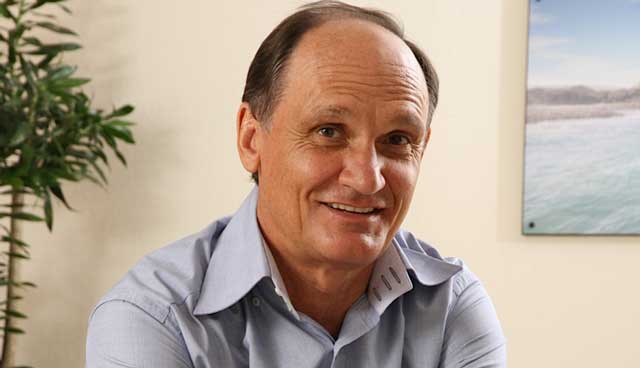
The constitutional court has slammed former Vodacom executives’ version of how the company’s “please call me” product was conceived.
The constitutional court on Tuesday morning found Vodacom was bound by an agreement with Nkosana Makate, the inventor of the “please call me” concept.
Vodacom now has to negotiate with Makate about compensation for the multibillion-rand idea.
The court, in its judgment, said that “despite the product being a success, Vodacom did not negotiate compensation for the use of the applicant’s idea.”
And the judgment had harsh words for former Vodacom CEO Alan Knott-Craig and its ex-head of product development, Philip Geissler.
“Instead, as the high court later held, Messrs Knott-Craig … and Geissler created a false narrative pertaining to the origin of the idea on which the ‘please call me’ product was based,” said the constitutional court judgment.
“They dishonestly credited Mr Knott-Craig with the idea and this lie was perpetuated in the latter’s autobiography,” said the judgment, referring to the book Second is Nothing.
The court highlighted how Geissler, responding to an e-mail from Knott-Craig, said on 25 December 2009 that he and Knott-Craig came up with the idea. The e-mail exchange happened after media had queried the correctness of the story.
But the constitutional court said Geissler’s response in 2009 “contradicted his earlier email of 9 February 2001 which was addressed to staff at Vodacom.”
In the e-mail, Geissler said “Makate from our finance department came up with this idea a few months ago and brought it to the product development division. We wish to thank [him] for bringing his idea to our attention.”
The constitutional court further said that Vodacom’s MD acknowledged Makate for the idea in a newsletter published in March 2001.
“Despite these facts, Messrs Knott-Craig and Geissler later claimed that it was the CEO’s idea,” said the judgment.
“This untrue story appears to have been part of a stratagem to deny the applicant compensation for the idea.
“Vodacom first accused him of having stolen the idea from MTN, its competitor,” said the judgment.
It’s not the first time that Knott-Craig and Geissler’s version of the “please call me” story has come under the spotlight.
In 2014, the high court in Johannesburg found that Knott-Craig’s claim to have invented “please call me” was implausible.
Judge Phillip Coppin, at the time, expressed concerns about Knott-Craig’s evidence.
In his judgment, Coppin said: “In my view, Mr Knott-Craig was not frank and honest about his knowledge of [Makate] and his idea and its link to the ‘please call me’ product.”
Coppin, though, dismissed Makate’s claim with costs as he said his application was lodged years too late. Makate’s first court bid on the matter occurred in 2008 after he said he invented the idea in 2001.
Knott-Craig left Vodacom in 2008. He then joined Cell C as its CEO in 2012 but he left in 2014 after suffering a stroke.
Geissler, meanwhile, left Vodacom in 2012 and he also spent a brief period at Cell C before going on academic leave in 2013, according to his LinkedIn profile.

